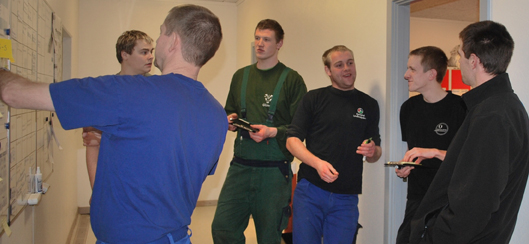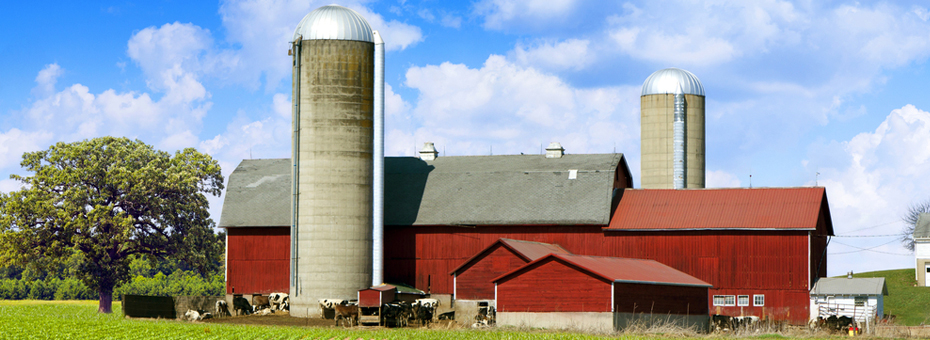Many farmers already do benchmarking and work with KPIs to continuously refine and improve their farming processes. So what can Lean do for these already high performing farmers? It can take farming operations to the next level. For me, Lean functions like an extra gear.
When you think you’ve reached top performance, Lean helps you find previously unforeseen waste and remove it from your processes. It helps you find a smarter way and opens up new possibilities. The trick is remembering it’s all about making small improvements in service of your customer. But just what is “value” for the “customer” on the farm?
The farmer thinks the customer is the person buying food in the supermarket. He thinks the food industry has the direct contact with the customer. The breakthrough (in farming at least) comes when the farmer starts to cut production processes apart into small pieces and see that he is both the customer and the producer/creator of goods and services for his own business. Then it makes sense to make improvements in service of the customer.
 |
For example, I recently did some lean coaching with a dairy farmer and his lead manager on their calf production process. They had just celebrated a tremendous result: a mortality rate of 0 % for the calves. They were skeptical when we started to make a value stream map because they were convinced there was no way to make improvements, no need for improvements.
When I asked them to define value for customer, they looked more closely at the calves’ weight. They saw that the customer (the “heifer production” line) demanded calves grow to 100 kg at an age of 8 weeks. But they had never weighed the calves. They had been focusing on the mortality rate alone. So just getting a handle on the process from the customer’s point of view was an eye opener.
They found, too, that the heifer production process didn´t need so many calves. They had been pushing all the calves from the milk production through just because they were used to doing so. They had been doing “push-production” due to tradition, but are now doing “pull-production” instead by sorting calves out early in the production line and more careful planning.
This was a standout coaching moment for me for sure, but what about other wastes on the farm? Waste is easy to see when there is mold on the silage or germinated wasted corn in a harvested field. When this happens, the farmer usually thinks his employees are doing a bad job and he just has to ask them to do a better job. If only it were so easy.
 |
Once I talked with a group of farmers about waste. One person talked about how another person had broken a gate with the tractor. Normally this would just instigate laughter and teasing, but it was interesting—this story began a conversation on how this event happened in the first place and how they could improve their work. In just a few minutes the guys began to discuss a bunch of potential countermeasures: stripes on the road, more training sessions, repairing a hole, etc. After more careful consideration and really looking at the root cause of the problem, they decided to start improving the overall conditions for more secure, faster driving.
When you start to think and work systematically with Lean (rather than just off the cuff), looking for waste becomes fun. You see opportunities for improvement everywhere. It becomes a kind of treasure hunt, and no one’s pointing fingers at employees or each other. All of a sudden people to start to work together to take their work to the next level.
It’s these small changes in approach and perspective that have been most useful to me about Lean. Working with lean principles and tools motivates people to be better and creates a whole new level of engagement. The white board meeting (yes, even for farmers!) or kaizen meeting is one good example of this. At first, I noticed that farmers didn’t see the point of such a meeting and felt awkward standing in front of a whiteboard. Now, with my team, everyone shows up looking to solve problems and think about new possibilities.
I’m beginning to collect stories of lean farming on my blog at www.leanfarming.eu. I’d love to hear your thoughts!





